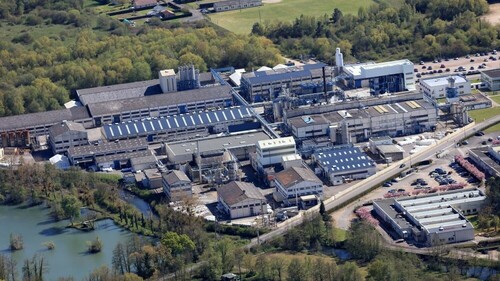
Arkema has increased its global manufacturing capacity for Pebax elastomers by 40% at its Serquigny plant in France to support its customers' growth in the sports and consumer goods markets. The new unit at the Serquigny plant can produce both the bio-circular Pebax Rnew and classical Pebax elastomer ranges, which are used in sports equipment, electronic devices, and specialty markets such as antistatic additives and medical devices. The expansion will also reduce water consumption at the site by approximately 25%. The Serquigny plant specializes in the manufacture of polymers and produces materials for various industries.
To support its customers’ strong growth, in particular in the sports and consumer goods markets, Arkema has increased its global manufacturing capacity for Pebax® elastomers by 40% at its Serquigny plant in France.
Arkema has successfully started its new Pebax® elastomer unit at the Serquigny plant in France. This new unit, designed with the latest advancements in industrial processes, can produce both the bio-circular Pebax® Rnew® and classical Pebax® elastomer ranges.
These advanced materials are used extensively in sports equipment such as running shoes, soccer shoes and ski boots, but also in electronic devices, and other specialty markets such as antistatic additives and medical devices.
"We are excited to start the production of this expansion in our Pebax® elastomers capacity. This represents a great opportunity for us to meet growing demand in existing and new applications while simultaneously improving our processes as water consumption at the site will be reduced by approximately 25%.” Erwoan Pezron, Senior Vice-President of Arkema’s high performance polymers business line
The Arkema Serquigny production unit
Specializing in the manufacture of polymers, the Arkema Serquigny plant produces Rilsan® and Rilsamid® materials, which are used for markets like automotive, industry, sport, and also coating metal objects and manufacturing parts for 3D printing. Much of the plant’s production is bio-based, meaning it is made from plant-based materials.
Located in the heart of the Haute-Normandie region where the Risle and the Charentonne rivers join, the Serquigny hub, which has been in operation since 1949, combines the production of materials with the plant and Research and Development with the Cerdato Research, development, applications and technical center of the West (Centre de recherche, développement, applications et technique de l’ouest). It helps maintain the region’s economic drive.